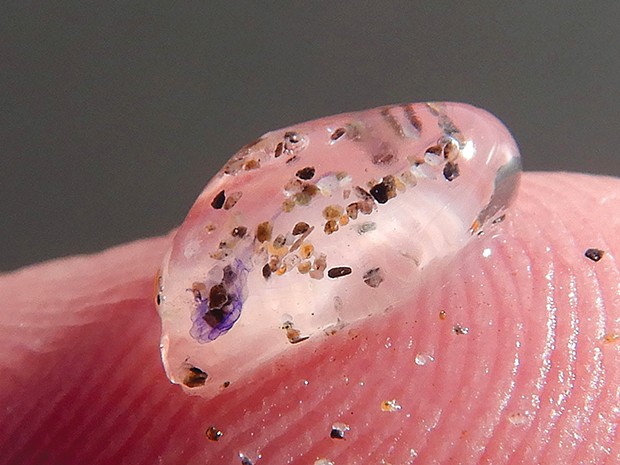[
{
"name": "Top Stories Video Pair",
"insertPoint": "7",
"component": "17087298",
"parentWrapperClass": "fdn-ads-inline-content-block",
"requiredCountToDisplay": "1"
}
]
Try this experiment: Cut yourself into two equal halves. I recommend a chainsaw for efficiency, but maybe you are good with an ax or have a bread knife handy.
Now, if you did it successfully, you'll realize that there is only one plane that separates your two essentially equal halves. The experiment works just as well with puppies, kittens, ducklings, bunny rabbits, butterflies, goldfish or anything else with a left and right side. This trait in an organism is called "bilateral symmetry."
Oops, I made a typo. I meant to write, "Try this THOUGHT experiment." No harm done though, right?
Anyway, some organisms, like regular jellyfish, are radially symmetrical and can be cut in half in essentially unlimited planes — like a pizza. Your typical five-armed sea star can be cut in half through five planes and, therefore, has pentaradial symmetry.
However, sometimes it isn't that easy to determine symmetry — like with the mysterious jelly blobs that have been washing up in gooey slicks on local beaches this month. I had to bring some home and look under the microscope to figure out what they were. And they seemed bilaterally symmetrical, which clued me in that they were some species of salp. The internet eventually confirmed them as the salp Thalia democratica.
Thalia is from Greek and means "abundance." And the taxonomist who named it did not screw up. Seriously, these things often form aggregations spanning miles. I don't know if "zillion" is really a number, but that's how many have been washing up.
These and other salps have sexually reproductive individuals that are linked together in chains that can be many feet long. And these produce a solitary form that reproduces asexually by budding off new linked sexual individuals. When food is abundant, they reproduce like crazy and become massive swarms in just a few days. I don't know which types our recent ones are — possibly a mix of both.
When swarming, they can consume so many small crustaceans, like copepods, that they out-compete small fish for food, so it might be a bad situation for nearby baby salmon. But they poo so much that they are effective sequesters of carbon as the carbon-rich poo settles to the bottom of the ocean. So, without them and other explosively reproductive salps, the planet might be warming even faster, which would be a worse situation for salmon.
These animals are found across the world's oceans but are normally associated with warmer offshore waters. But it makes sense that they would suddenly appear here, where they aren't common, because we've had warm oceanic water close to shore this summer.
The little jelly-blobs are more closely related to you and me than they are to regular jellyfish. They are sometimes called "protochordates," which means they are the evolutionary forerunners of chordates like us. We share a structure with them called a "notochord," which is a flexible rod that eventually gave rise to our backbones and spinal cords. So, the bilateral symmetry of salps and humans traces back to a common ancestor.
There's no telling how long these things will be here. Look for drifts of ugly goo and, if you look closely enough, you'll see the beautiful little blue dot that is their gut. But avoid stepping on them so you don't gunk up your feet.
Well, the FBI just bashed down my front door. Apparently, I've been indicted on hundreds of counts of manslaughter and incitement of animal cruelty. Sorry. I would have fixed that typo if I thought anyone was paying attention. Didn't know I was the leader of a cult.... Cool.
Biologist Mike Kelly (he/him) is also the author of the book Tigerfish: Traditional and Sport Fishing on the Niger River, Mali, West Africa. It's available at Amazon or everywhere e-books are sold.
more from the author
-
Hot Tomcod Action
- Apr 18, 2024
-
Wandering Meatloaf
- Mar 7, 2024
-
Sea Palm Crime
- Jan 11, 2024
- More »

































